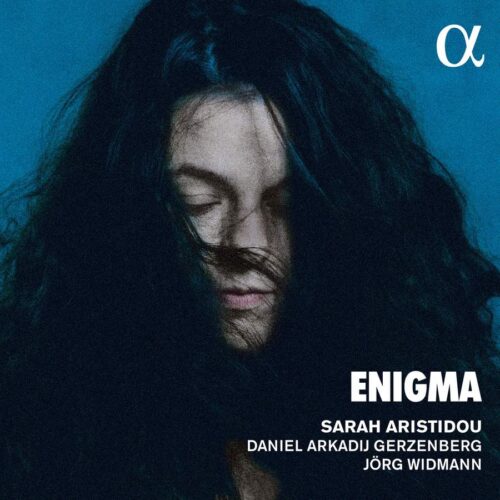Sarah Aristidou is an ultra-versatile Greek singer, but she’s mostly associated with contemporary music or explorations on the fringes of ‘traditional’ classical music. In that sense, she reminds me a little (quite a lot) of the Canadian Barbara Hannigan, whom I adore. I also love Aristidou deeply. So I was really looking forward to Enigma, a relatively conceptual album where the ‘mystery of life’ (the enigma) is explored through all sorts of thematically, even philosophically, linked pieces. Musically, the album draws on Romanticism, Modernism and contemporary music.
Mixing Messiaen, Rachmaninov, Wölf, Schubert, Ravel and avant-garde pieces into a single coherent continuum is a challenge, and it takes a whole personality, combined with a very precise sense of the expressive unity of one’s repertoire, to manage to create an ensemble that is satisfying and convincing. Aristidou comes close.
She launches this discographic enigma with a rather demanding main course: the Lamento turco by Andreas Tsiartas (born in 1986). Eight minutes of lament-like vocalizations, subduing and haunting, ending with an atrocious scream that could serve as a cousin to Diamanda Galas’s Litanies of Satan.
Vocalises followed by another, very famous one: that of Rachmaninov. The transition is not convincing. I like contrasts, but this one seems forced, more cerebral than musical. All the more so because you don’t feel Aristidou is invested in this piece. It’s far too sweet for her. Her reading offers nothing genuinely new and, horribly, she shovels it in profusion (shovelling: sliding towards the note rather than reaching it directly). It’s the album’s only real failure.
As for the rest, we move from Schubert to Messiaen (magnificent), then back to Wölf, then Ravel, Messiaen again and ending with Jörg Widmann (monumental 14-minute Sphinxensprüche und Rätselkanons, made up of vowels A and O that slowly take shape, like the Alpha and Omega). The Romantics Schubert and Wölf may not be as transcendent as the more modern and contemporary composers, in Aristidou renderings, but they have character.
All in all, an album built on a good initial idea, imperfectly realised in its final form, but containing enough moments of grace to solicit your attentive listening and largely satisfy it.
























